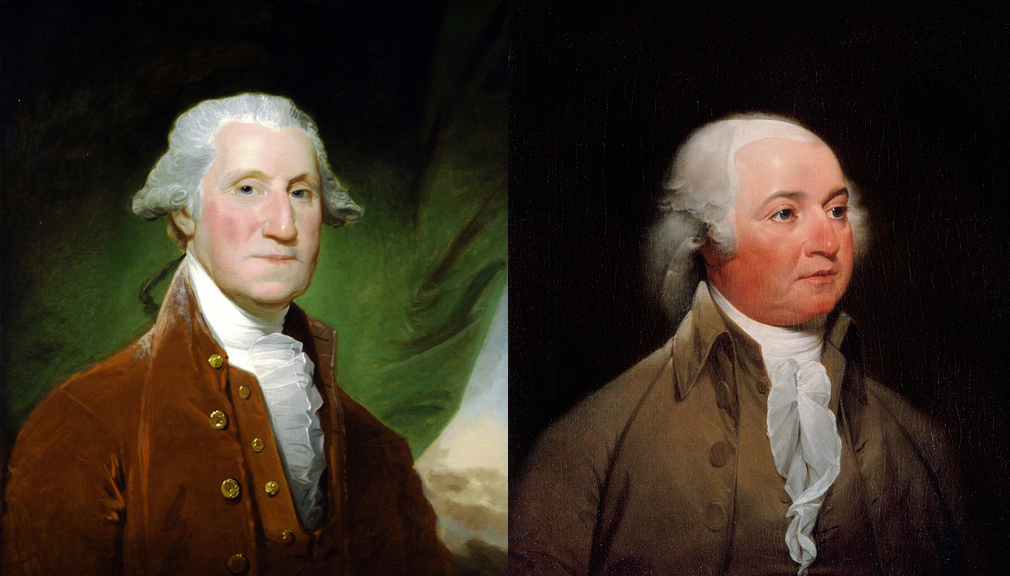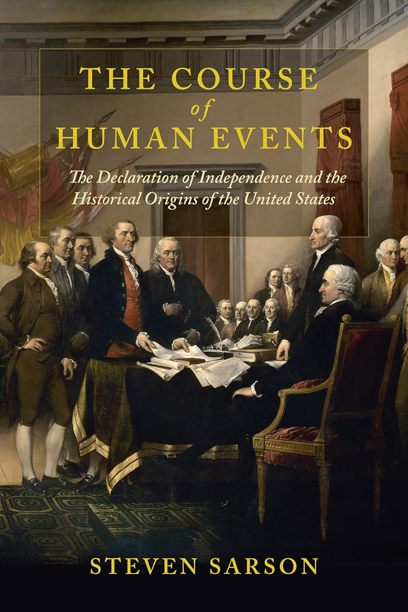General Mercer was down, bludgeoned and bayoneted. Colonel Haslet was down too, shot through the head. Captain Shippin of the Continental Marines had fallen, as had Captain Fleming of Virginia. Captain Neil of the New Jersey militia artillery was also down, his two-gun battery overrun and turned against them. The previously untested and now panicked militiamen of General Cadwalader’s brigade of Philadelphia Associators were breaking and running. Their numerically disadvantaged but determined and superbly professional adversary, the British 17th Regiment of Foot, was relentlessly moving forward. These seasoned infantrymen were on the verge of completely routing Gen. Nathanael Greene’s column, constituting almost half of Washington’s entire army strung out on their back-route march to Princeton. The Americans’ longshot opportunity to save their Revolution was on the brink of being terminated.
On the freezing morning of January 3, 1777, however, one man was determined to stand his ground at the Thomas Clarke farmstead, where British and American forces had accidentally and bloodily collided. He was Associator Capt. Joseph Moulder, sixty-two years old. Moulder commanded a company with an initial strength of approximately eighty men, who reportedly ranged in age from seventeen to twenty-three and who had been recruited from the Philadelphia dockyards.[1] The unit had two French long four-pounders remaining from an original trio. As the red-coated men of the 17th and a contingent of the 16th Light Dragoons (both mounted and dismounted) began to clamber over and clear around Clarke’s split-rail fences, Moulder hurriedly trained his grapeshot-loaded guns. One witness wrote that the battery’s fire was so sharp that “the British screamed as if so many devils had got hold of them.”[2] The cannons’ discharges at close range slowed, then halted the British advance, just as General Washington was riding directly onto the Princeton battlefield at great personal risk, memorably steadying and rallying Cadwalader’s forces. Fortune shifted. The triumphant cry went up – “the day is ours!” – and the badly outnumbered men of Lieutenant Colonel Mawhood’s valiant 17th were forced to fight through potential encirclement before scattering for their lives across the Jersey countryside.
Captain Moulder and his crews had “served with great skill and bravery” in the words of one witness, and their volleys of grape had blunted the British advance just in time.[3] Together with Washington’s dramatic appearance on the field, Joseph Moulder’s actions indisputably can be said to have turned a potentially crushing defeat into an inspirational and desperately needed victory.[4] It had already been a long day for him and his men, as during the early morning hours, after having engaged in an artillery duel along the banks of the Assunpink Creek the evening before, they had marched from Trenton with the wheels of their gun carriages muffled in rags, for twelve miles in the darkness and bitter cold via rough backroads to Princeton.[5]
After the main engagement and the subsequent mopping up of additional British troops in and around the then College of New Jersey, however, the captain’s day took an intriguing and ironic turn. Moulder’s guns were deployed on a hill overlooking the Millstone River to the east of Princeton, alongside the road which led to Somerset Courthouse and branched northwards off the Post Road connecting Trenton, Princeton and Brunswick. The artilleryman’s mission was to cover the withdrawal by Washington’s army and to delay the pursuit by a furious, fearful (for his gold supply in Brunswick), and thoroughly flummoxed Lord Cornwallis, coming back up the Post Road from Trenton with the main British column. Moulder’s orders were to spike and abandon his guns and to save his precious, experienced crews when the enemy closed in.
A party of British dragoons galloping down the Post Road did indeed draw close to the battery’s position, but Moulder, again very stubbornly, decided that instead of abandoning his field pieces his men would attempt to haul them off with drag-line ropes as they sought to rejoin the main body of the American army. (Probably reflecting their shipyard and maritime origins, he and his militia unit apparently did not want to be regarded by the Continental artillery as “grass combers,” the disparaging term sea-farers applied to just-off-the-farm, inexperienced landlubbers.)[6] The captain, his men, and their four-pounders were extricated by the timely intervention of the Philadelphia Light Horse under Capt. Samuel Morris, known as “Quaker Sam,” yet another fighting former member of that pacific denomination. In the words of the First Troop’s official history, the troop “gave essential aid to Captain Moulder, who had determined, although against orders, not to let his guns fall into the enemy’s hands.”[7] Fortuitously rescued, Moulder’s company, guns and all, was able to rejoin Washington’s column as it pivoted northward on the road through Somerset Courthouse, seeking safety and a new base of operations in the comparative fastness of Morristown.
After the victorious but exhausted American army arrived at its Morristown encampment on January 6, Moulder, the co-hero of the Battle of Princeton along with the commander-in-chief, was promptly and disconcertingly brought up on charges before a board of inquiry for having jeopardized his gun crews at the Millstone River. He was, however, exonerated and his sword was returned to him, to the delight of the militia, who had gathered outside the building where the board was deliberating. One of Moulder’s officers, 2nd Lt. Anthony Cuthbert, who would later succeed Moulder in command of the company, reported that “the boys, after three hearty cheers, struck up ‘Yankee Doodle,’ and returned to their quarters in high glee.”[8]
This incident provides us with possible insight into Washington’s methods of leadership and command: on the one hand demonstrating that no one’s conduct, regardless of hard-earned plaudits, would be immune from critical investigation and potential punishment, but on the other hand seeing to it that valor would not be swiftly and unnecessarily transformed into disgrace. Sending a bifurcated message, in other words.
And Washington himself displayed bifurcated feelings about the militia which he had previously viewed with some significant disapprobation and distrust. He wrote to the President of the Continental Congress from Pluckemin (before reaching Morristown) on January 5, 1777: “I fear those [militia] from Philadelphia will scarcely submit to the hardships of a winter campaign much longer, especially as they very unluckily sent their baggage to Burlington. I must do them justice, however, to add that they have undergone more fatigue and hardship than I expected militia, especially citizens, would have done at this inclement season.”[9]
Indeed, Moulder and his men would be headed homewards in a few weeks’ time.[10] But more so than any of their Associator comrades, the intrepid Moulder – who would die in Philadelphia two years later – and his courageous company had dispelled some of the cynicism of their commander.[11]
[1] Moulder himself had been a sailmaker by trade. Steven Rosswurm, Arms, Country, and Class: The Philadelphia Militia and “Lower Sort” during the American Revolution, 1775-1783 (New Brunswick: Rutgers University Press, 1987), 175.
[2] William S. Stryker, The Battles of Trenton and Princeton (Boston: Houghton, Mifflin, 1898), 284-285.
[3], Caesar A. Rodney, Diary of Captain Thomas Rodney 1776-1777 (Wilmington: Historical Society of Delaware, 1888), 439-440.
[4] Jac Weller, “Guns of Destiny: Field Artillery in the Trenton-Princeton Campaign 25 December 1776 to 3 January 1777,” Military Affairs, Vol. 20, no. 1 (Spring, 1956), 13-14; Richard M. Ketchum, The Winter Soldiers (Garden City, NY: Doubleday, 1973), 360; T. J. Wertenbaker, The Princeton Battle Monument (Princeton University Press), 1922.
[5] Stryker, The Battles of Trenton and Princeton, 265.
[6] Letter from Anthony Cuthbert, qtd. in Charles C. Haven, Thirty Days in New Jersey Ninety Years Ago (Trenton: State Gazette, 1867), 45-46.
[7] History of the First Troop Philadelphia City Cavalry 1774-1874 (Philadelphia: Hallowell, 1875), 10.
[8] Letter from Anthony Cuthbert qtd. in Haven, Thirty Days in New Jersey, 46. The Cuthbert letter appears to be the sole identifiable primary source for the board of inquiry episode, which has been referred to in passing in works by Alfred Hoyt Bill, The Campaign of Princeton 1776-1777 (Princeton University Press, 1948), 118-119; and Ketchum, The Winter Soldiers, 376. My attempts to locate either the original letter or the board’s records have thus far been unavailing; I am advised by an editor at the Washington Papers project that many records of this type were destroyed in a fire around 1800. Haven was an amateur historian of some note and repute: see, The Trenton Historical Society, “A History of Trenton 1679-1929,” under the sub-heading “Trenton Authors and Their Books,” www.trentonhistory.org/His/journalism.html.
[9] George Washington to John Hancock, January 5 1777, Founders Online, founders.archives.gov/documents/Washington/03-07-02-0411.
[10] Their number had dwindled to fifty-four by January 18, including three wounded, two “sick and present” and nine “sick and absent.” Rosswurm, Arms, Country, and Class, 134.
[11] Moulder’s men brought their two cannon back with them in late January as property of the State of Pennsylvania, in spite of some apparent disputation in Morristown. The Henry Knox Papers January-April 1777, The Gilder Lehrman Institute, 7-10, www.americanhistory.amdigital.co.uk/Documents/SearchDetails/GLC02437.00518









3 Comments
Well written and intriguing story! With so many officers down, it took considerable courage to turn the tide of battle. Sounds like Washington owes more to Moulder than a court martial exoneration!
I am a descendent of Joseph Moulder. Very well researched and written work which I concur is quite accurately and thoroughly conceived and thusly written. Well done. You do him a great honor and as a member of his line, I deeply appreciate and thank you for you hard work. “These hero’s who dared to die and leave their children free!”
Although I attended Princeton, my knowledge of the history of that region during the Revolutionary War is minimal. This is an excellent piece and is made even more interesting due to my familiarity with the scene. Well done, Rand.